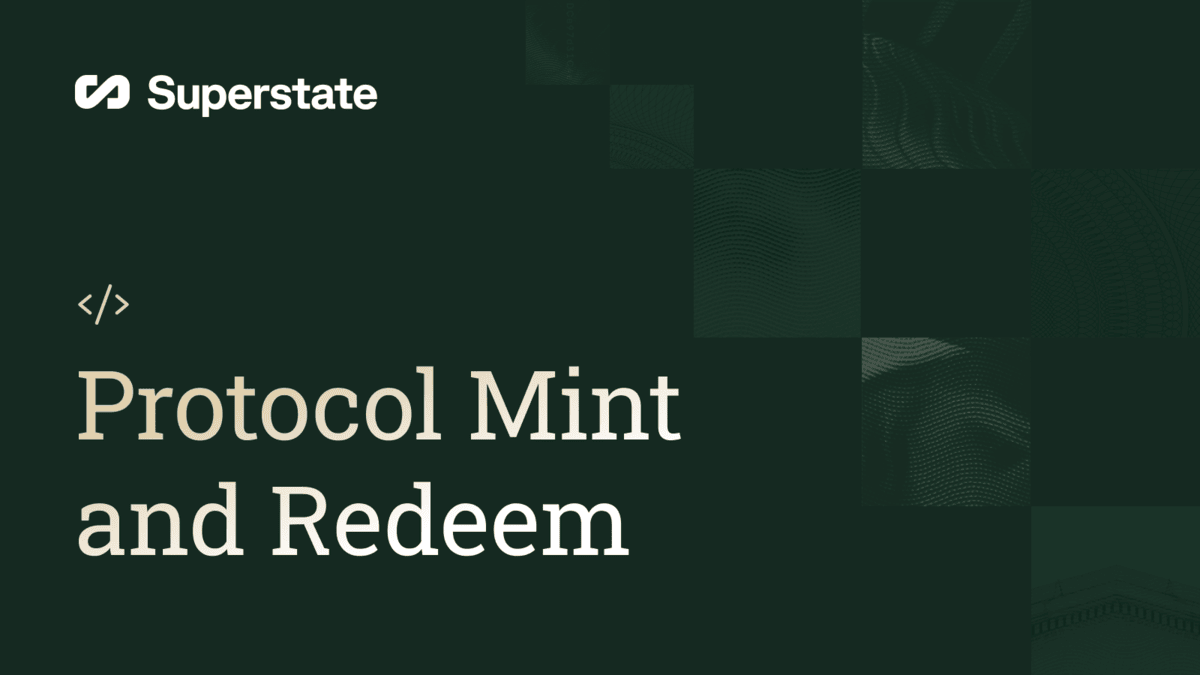Introducing Protocol Mint and Redeem for USTB

At Superstate, we’re advancing our mission to modernize finance with the latest upgrade to our tokenized treasury fund, USTB: Protocol Mint and Redeem. These new features are composable functions on Ethereum that allow USTB investors to mint or redeem shares instantly. The Protocol Mint and Redeem upgrade unlocks critical new workflows for DeFi protocols, stablecoin issuers, and automated investment strategies.
How It Works
Leveraging our previous product upgrade, Continuous Pricing, we now offer Protocol Mint and Redeem of USTB at the continuous price, which increments every second.
The USTB contract has been upgraded to include the subscribe function, which transfers USDC from the investor’s wallet for newly minted USTB in one blockchain transaction. There are no limits for minting.
A redemption contract has been deployed with the redeem function, which burns USTB from the investor’s wallet for USDC in one blockchain transaction. Protocol Redeem liquidity will initially begin at $10,000,000, and USDC liquidity will be added to this contract regularly to facilitate instantaneous redemptions.
For more information, please see our Documentation.
Superstate USTB Oracle
In addition to our integrations with Chainlink and Chronicle oracles, Superstate has built a custom on-chain oracle to facilitate continuous pricing on-chain. Superstate updates the USTB Oracle with each Net Asset Value per Share (NAV/S) checkpoint calculated by our NAV Calculation Agent partner. The Protocol Mint and Redeem functions use the USTB Oracle to calculate the continuous price.
With the USTB Oracle, any smart contract can request a continuous price on-chain. This approach is unique, highly composable in DeFi, and gas efficient.
Why Protocol Mint and Redeem Matters
Ethereum smart contract developers are now able to leverage USTB’s capabilities without having to integrate off-chain components, while benefiting from faster and predictable settlement.
Protocol Mint and Redeem are powerful tools for developers, stablecoin issuers, and lending protocol liquidators that rely on DeFi composability. This upgrade sets the stage for the continued growth of USTB on-chain.